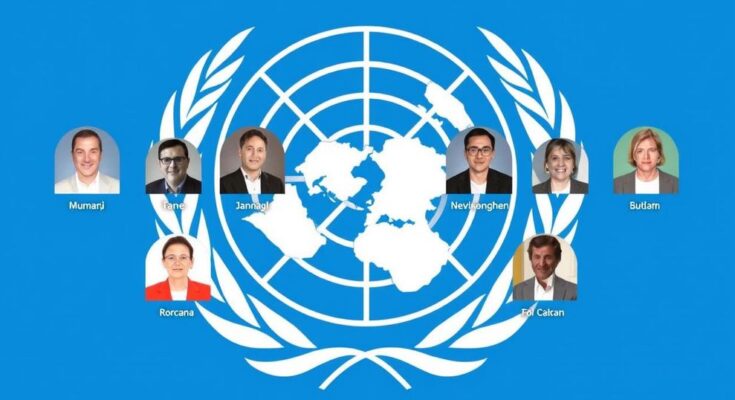The recent U.N. Human Rights Council membership election continues to stir controversy, as many nations elected are considered authoritarian regimes. Notably, 60% of its members are dictatorships, raising alarms among human rights advocates. The U.S. opted out of reelection amid accusations of biases, especially towards Israel. Organizations call for a reassessment and potential dismantling of the council, paralleling historical precedents of failure and corruption.
The U.N. recently announced its new members for the Human Rights Council, a decision met with disappointment and frustration. While the rejection of Saudi Arabia’s bid was seen as a victory for human rights advocates, the overall composition of the Council remains troubling. With dictatorships like Cuba and China holding seats, many see the council as a mockery of its intended purpose. Human rights groups highlight that around 60% of the members do not meet the minimum standards for upholding human rights, raising significant concerns about the integrity of the council. The council’s recent elections brought nations like Qatar, known for severe human rights violations, onto its roster. Critics from several human rights organizations argue that these countries lack the legitimacy to serve on such an important panel. Countries like Bolivia and Ethiopia join a list that includes Mexico and Colombia, which have questionable records, undermining the notion of the council serving as a legitimate authority on global human rights. Hillel Neuer, Executive Director of U.N. Watch, explains that authoritarian regimes are more eager to gain election to the Council than democratic nations. They often leverage their positions to deflect attention from human rights violations, using their votes for influence on other committees in exchange for support. This results in a troubling dynamic where grievous states manipulate the system for propaganda purposes, further complicating the Council’s mission. Interestingly, the United States chose not to seek reelection, raising questions about its intentions. It’s unclear if this is a strategic retreat from the corruption perceived in the Council or a move to escape constant criticism. The Council’s notorious bias against Israel has made it a contentious topic, with significantly more resolutions issued against Israel than against other nations known for severe human rights abuses. In conclusion, the U.N. Human Rights Council is increasingly perceived as a protective buffer for regimes that abuse human rights. The body has strayed far from its original mission, echoing the reasons for disbanding its predecessor in 2006 due to corruption. There’s a growing call to dismantle the current council and reassess how global human rights are governed, as it now serves as a façade rather than an effective force for good.
The U.N. Human Rights Council, a crucial body formed to oversee and promote human rights globally, finds itself under intense scrutiny. Despite having been established as a successor to the flawed U.N. Human Rights Commission, many argue it is now dominated by non-democratic regimes that undermine its credibility. Human rights advocates express disillusionment as these regimes manipulate council membership and resolutions to shield their abuses, leading to questions about the effectiveness and integrity of the body.
The current membership and functioning of the U.N. Human Rights Council call for urgent reevaluation. With a composition heavy with authoritarian regimes, the council is increasingly viewed as ineffective and biased. The longstanding failure to address human rights violations adequately indicates that reform or disbandment may be necessary to restore faith in international human rights advocacy.
Original Source: www.miamiherald.com



